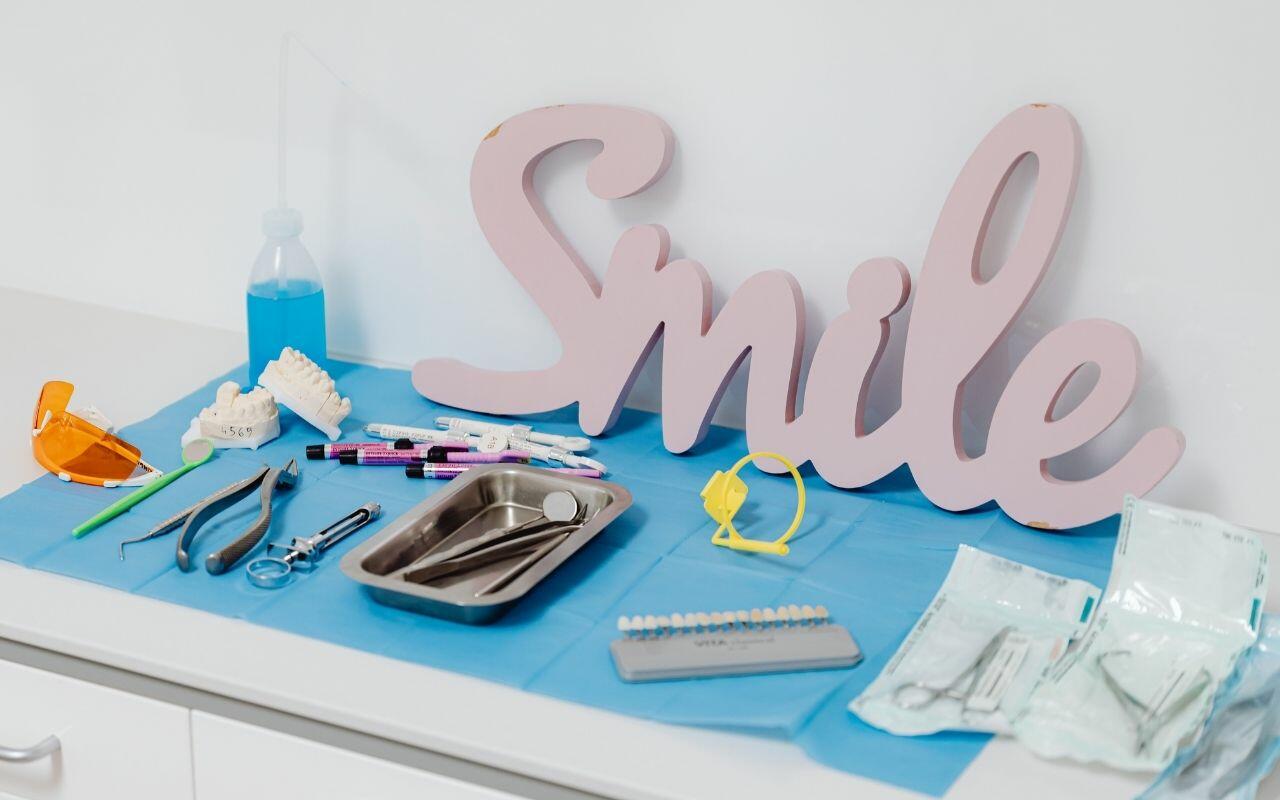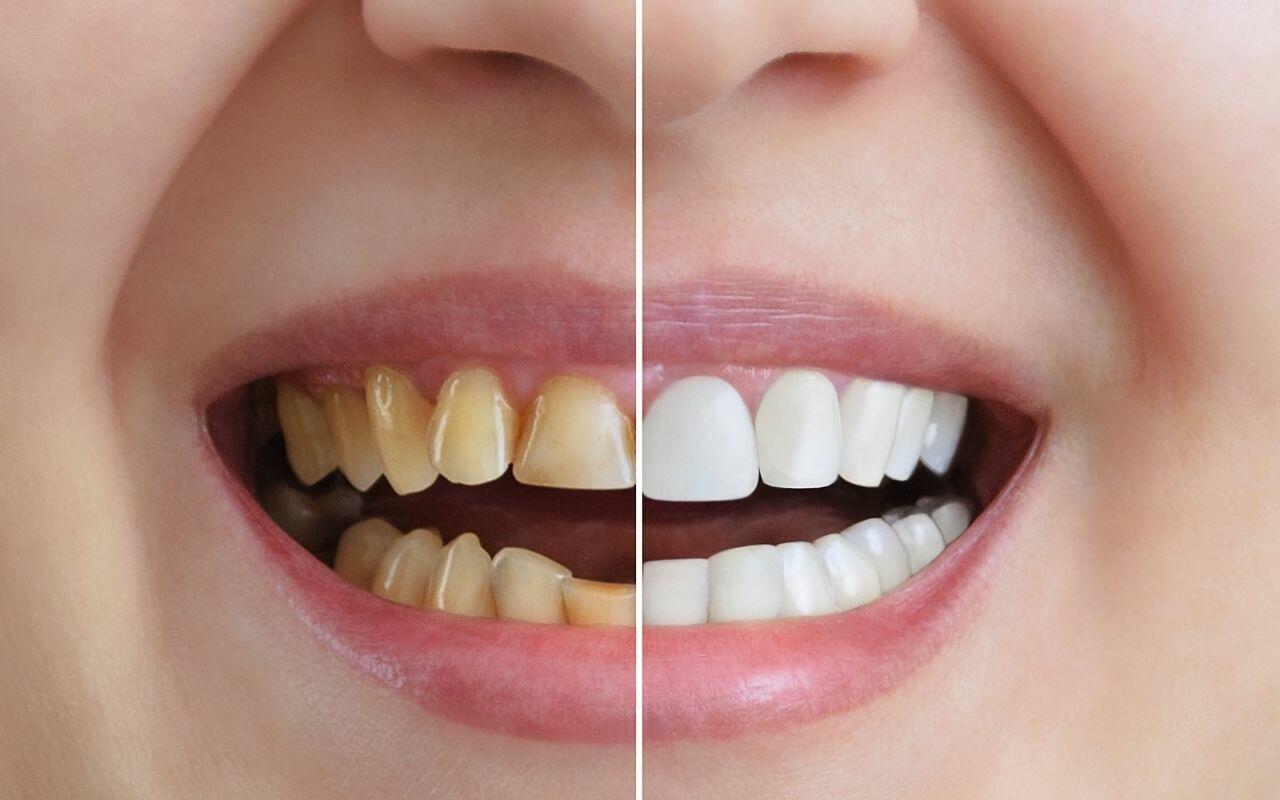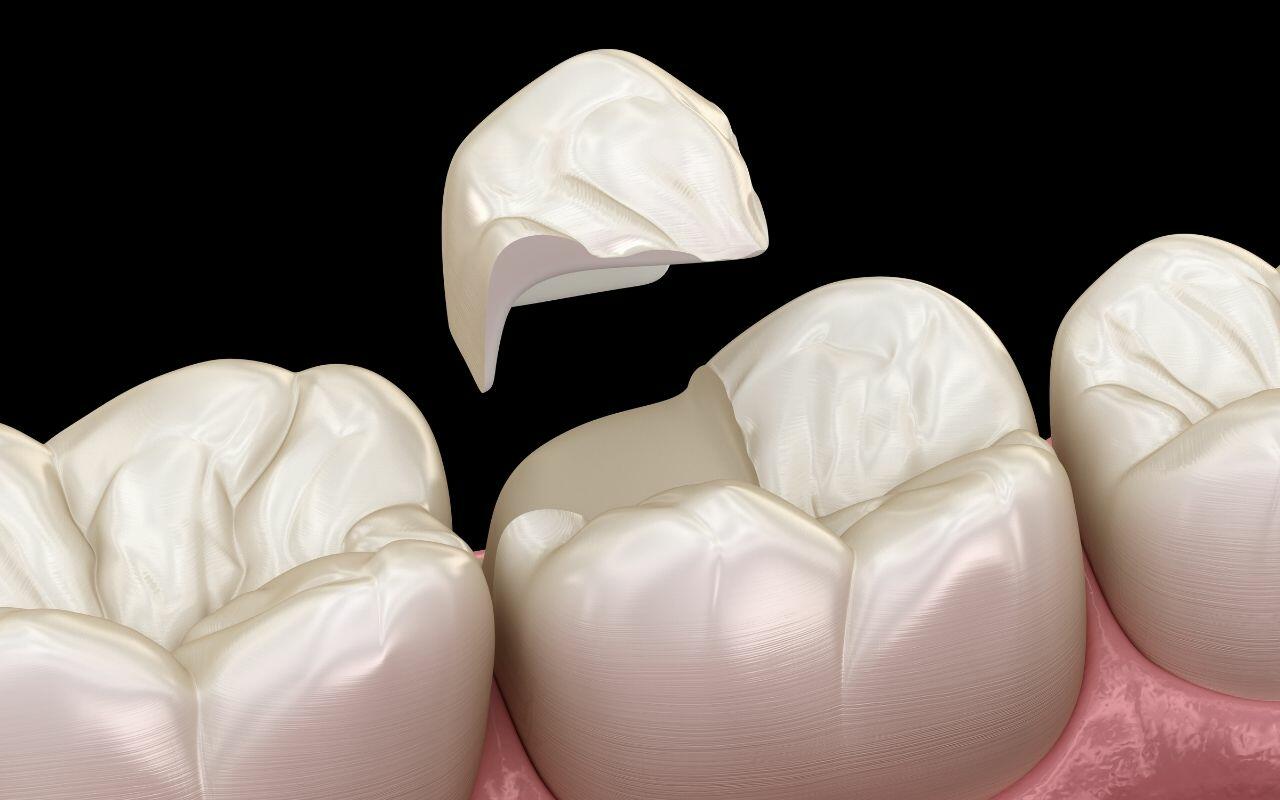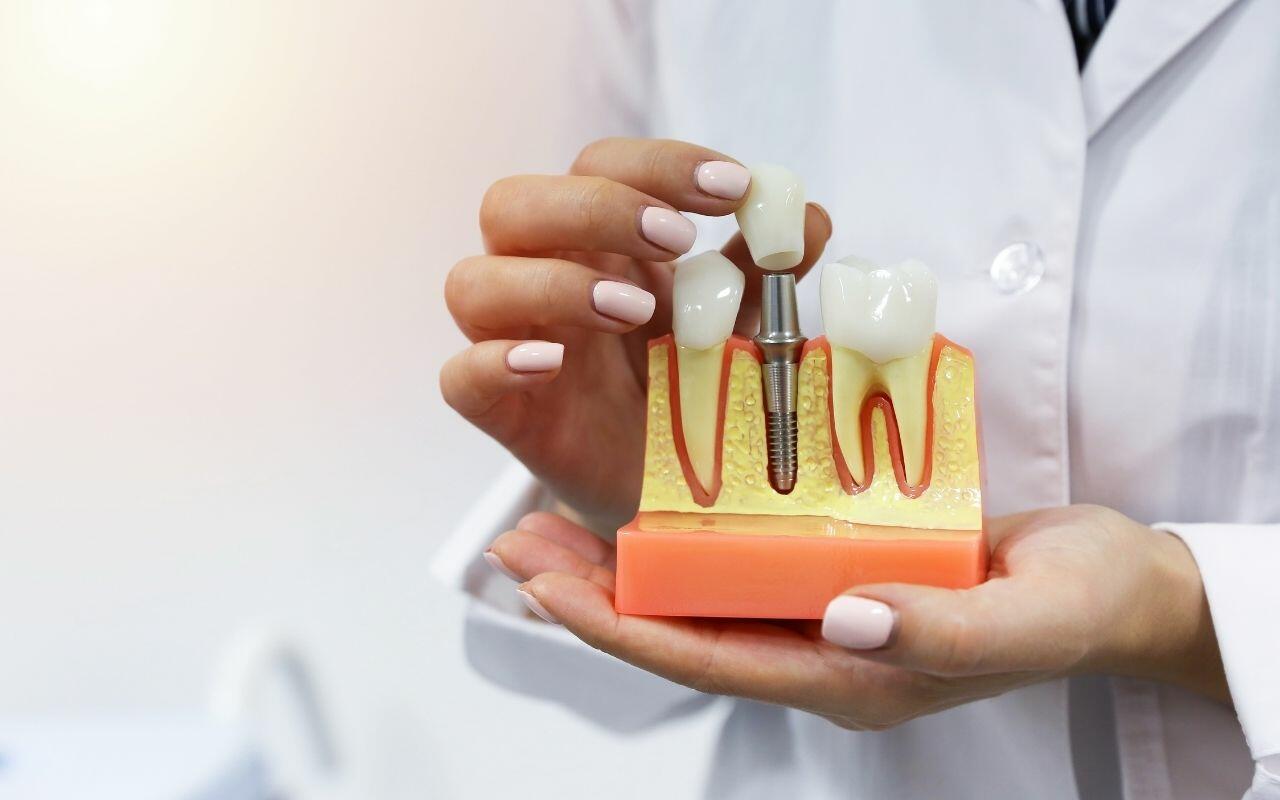Have you ever wondered, what’s the difference between restorative and cosmetic dentistry? You might even wonder what the term restorative dentistry means. As a patient, it’s always good to understand treatment options and discover new ways to improve your smile. Here we look at the difference between these two options and how it impacts your smile and pocketbook.
What Does Restorative Dentistry Mean?

Restorative dentistry refers to any treatments that restore the integrity of your teeth or other damaged structures such as your gums. It not only includes fillings but all forms of treatments such as crowns, implants, bridges, root canals and more.
Difference Between Restorative And Cosmetic Dentistry — Or Function vs. Looks
Perhaps the easiest way to compare the two is to look at them in these terms. As you can probably imagine, cosmetic has to do with the look of your teeth, while restorative work contributes to the proper function and condition of your teeth. Some treatments bridge the two such as orthodontics, that both straightens to beautify while also improving bite function, while other treatments such as teeth whitening are strictly cosmetic.
When Are Cosmetic Procedures Required?

While restorative treatments are required in order to fix the integrity of your teeth, cosmetic treatments are scheduled by choice for a desired aesthetic improvement. However, as mentioned, there are some procedures used in cosmetic dentistry that are also used for restorative treatments. The difference lies in the ‘why’, or the reason behind the treatment. Cosmetic treatments correct your smile woes such as:
- Staining and yellowing
- Chipped teeth that are otherwise sound
- Gaps
- Overlaps and crowding
- Gummy smiles
- Misshapen teeth
All these smile imperfections can be resolved with various cosmetic dentistry treatments. You need only mention them to your dentist, and they will offer solutions to improve your smile.
What Procedures Are Considered Cosmetic Dentistry?

The most common cosmetic procedures include:
Bonding for Chips: Although a chipped tooth can be unsightly, not all chipped teeth require restoration. As long as the chip is not too severe, does not show the presence of decay and isn’t painful, you don’t have to repair it. However, if you do find it difficult to live with from an aesthetic standpoint, chips can be fixed using a treatment called bonding. A bonding putty is matched to your tooth colour and is applied to fill in the chip.
Bonding for Seamless Smiles: Bonding can also be used as a filling. In the case of cosmetic dentistry, you can replace dark, noticeable fillings with tooth-coloured, bonded fillings. Many people do this because they find when they yawn or laugh the dark fillings are unattractive.
Whitening: This is an obvious cosmetic treatment used to whiten discoloured teeth. It is not for everyone as it only works on certain types of stains. Also, if you have crowns, bonding or veneers, the bleaching process won’t work. It also isn’t permanent as discolouration is caused by staining from day-to-day life such as food, coffee, and smoking. So, it will have to be repeated to maintain your white smile.
Crowns: Crowns are also known as caps in the cosmetic dentistry business because they literally cap unattractive teeth. They require your tooth to be filed down to fit the crowns over the teeth but provide a natural smile.
Veneers: Veneers are sort of like crowns, but instead of covering the entire tooth, they only cover the fronts. They can be used for closing gaps, covering stains not removed by whitening, and in some cases to cover up issues braces can’t correct. They are thin layers of porcelain glued to the front of your teeth to perfect some aspects of an imperfect smile.
Your dentist might recommend a combination of procedures to get the results you desire.
When Are Restorative Dental Treatments Required?

When you experience symptoms such as pain, bleeding gums, or noticeable issues detected at your dental checkups, your dentist will provide a diagnosis and treatment plan. Emergency situations such as knocked-out teeth, chipped and damaged teeth, or severe pain due to abscess are also reasons your dentist will recommend treatment. Restorative treatment might also apply to issues with your bite, jaw, or gums.
What Procedures Are Considered Restorative Dentistry?

Restorative dentistry treatments most commonly required include:
Fillings: Fillings are used to restore damage caused by tooth decay. The small hole is filled with a bonding substance once the decay is removed by your dentist. Fillings are the most common dental treatment and are usually finished in less than an hour.
Crowns: Crowns are required when damage to the tooth is too severe for a simple filling. They allow you to maintain the tooth and root.
Bridges: Bridges replace missing teeth whether it is a single tooth or a string of teeth. They use crowns for the replacement teeth and then affix a bridge over the existing teeth which is secured as a permanent tooth loss solution.
Implants: Dental implants also replace missing teeth but are implanted into the gum and bone. Posts are surgically implanted into the jawbone, and the crowns are screwed on. They are the best tooth loss solution as they stimulate the jawbone to prevent bone loss.
Root Canals: Root canals are performed when the soft inner pulp of the tooth is infected. Your dentist removes the infected tissue and decay and then plugs the hole. In most cases, a crown is also required.
Full-Mouth Bite Reconstruction: Bite reconstruction restores the way your teeth fit together. This involves a series of procedures to help improve the position and health of all your teeth, so teeth are better aligned for improved bite, oral health and even appearance.
Bridges, crowns, and implants can also be used for cosmetic improvements.
How Insurance Applies To Cosmetic vs. Restorative Treatments

In most cases, cosmetic treatments are not covered by a typical insurance package. Usually, dental benefits only cover the basics such as dental checkups and cleanings, some emergency appointments, and most restorative treatments. Therefore, you should discuss the cost associated with cosmetic treatments and understand payment options before scheduling your appointment.
As you can see there is quite a bit of overlap for many of these treatments. The bottom line is your dentist can resolve your dental issues whether they impact your health, or affect your confidence due to an imperfect smile.
Call today to schedule an appointment at 905-775-5307 or click here to request an appointment.

